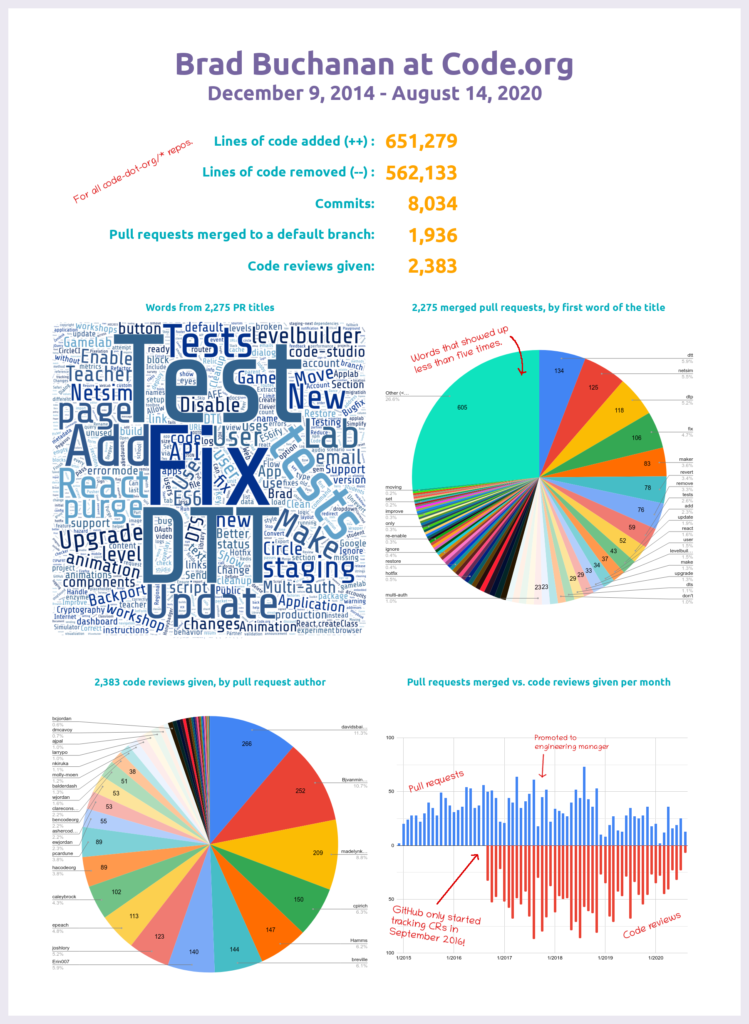August 14, 2020 was my last day at Code.org.
It felt strange, leaving a job mid-pandemic. There was no desk to pack up, no handshakes on the way out, no threshold to cross for the last time. I emailed out thank-you notes, posted this gif to Slack, and signed out of all my accounts.
That makes it sound uneventful. The team shared multiple video-call hours of heartfelt goodbyes over the past week, and many promises to get coffee when we are all comfortable going to coffee shops again. At least five former coworkers made surprise appearances to wish me well.
I spent 5.7 years at Code.org. As of today, that represents three-quarters of the organization’s history. Code.org has served more than one billion Hours of Code and enrolled more than 50 million students in our courses. We have seen policy changes supporting CS in all 50 states. Our curriculum is used in over 180 countries around the world.
During my tenure, the engineering team published about 1,775 releases. I personally merged nearly 2,000 pull requests (a pull request is a documented contribution; it can represent hours or weeks of work) and I reviewed more than 2,300 pull requests by my teammates.

I’ve enjoyed working in public, which makes it easy to share all of this with you. Some contributions that I’m especially proud of:
- Fix trash can fade layering (October 2015)
- Google charts in App Lab (October 2015)
- Procedural animation effects for Play Lab (October 2015)
- Cut App Lab load time in half (October 2015)
- S3-backed animation library (September 2016)
- Support rotated rectangle collisions (November 2016)
- Import custom levels 4x speedup (August 2018)
- Cut v3-sources LIST requests by 99% (October 2018)
- Cut dance party load time in half (November 2018)
- Fix performance of tint effect (3x speedup) (November 2018)
- The Daily Zendesk (March 2019)
- Delving into the curriculum hierarchy (October 2019)
- Diagnosing an intermittent test failure (December 2019)
- YouTube restricted mode audit script (January 2020)
- PartialRegistration gets a smaller session cookie footprint (August 2020)
But I think my legacy at Code.org is not the code I wrote. One of my senior colleagues commented yesterday that I joined a group of engineers, but I am leaving a coherent team. I have certainly tried to model a highly collaborative approach to software. “Interruptibility is a virtue; the hivemind is smarter than any of us; multiply others first; collaboration solves motivation; everyone is a project lead; we own failures together.” I’ve been throwing these words around for years now. I believe they are principles that lead to happy, effective software teams and I’ve seen them bear fruit at Code.org.
What’s next? Two weeks of vacation, preferably offline! We are unplugging with a pile of books for a bit. At the end of the month, I will be joining Google as an engineering manager. I’ll probably be working from home well into next year. When we do return to offices, I will commute to Kirkland.